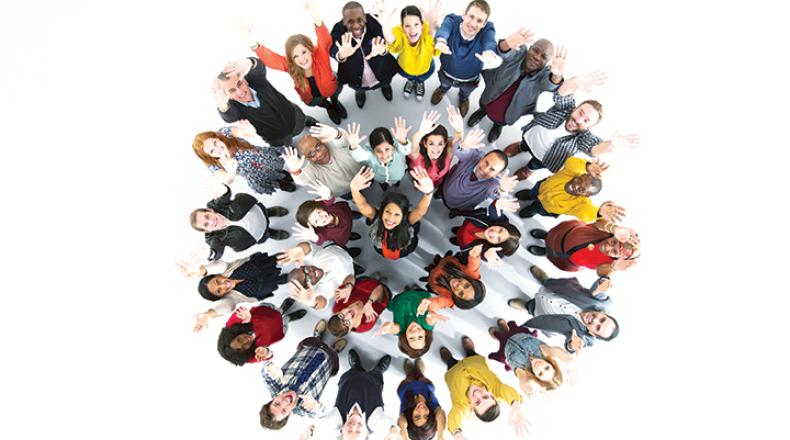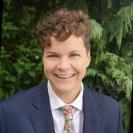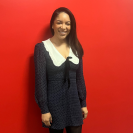Relationships: Recasting Philanthropy With a Community of Practice

By starting your own community of practice, you can challenge the status quo and deepen your skills
Two people walked into a bar and started talking about challenges in philanthropy and the fundraising profession—and they started a community of practice.
Well, it is a bit more complicated than that, but that was the outcome of a beautiful collaboration between us—Tanya Hannah Rumble (she/her) and Nicole McVan (they/them). And after a few years building and nurturing Recast Philanthropy—which helps fundraisers deepen their skills in imagining and implementing more equitable fundraising practices and processes—we thought there might be some lessons and insights to share with others seeking community in the fundraising sector, whether as a formal or informal community of practice.
A community of practice is just what it sounds like: a group of people who share a passion for something they do and who learn how to do it better by interacting regularly. Our Community of Practice was built on our desire to be an active part of transforming philanthropy and the nonprofit sector to be more equitable and anti-oppressive. It was also built from a place of respect and love for our communities, donors, volunteers, and colleagues we work alongside. Philanthropy can be incredibly meaningful and impactful but can also cause harm because it is (and we are) not immune from the larger paradigms and prejudices of society. Our Community of Practice works to dismantle the systems of oppression in the sector and to transform what is possible in our world. We do that by creating real dialogue that leads people to take action to change within the systems in which they operate.
How We Got Started
In 2019, we were involved in a workshop for AFP Congress in Toronto about the barriers women and gender-diverse people face in the sector. (The workshop was hosted by Tanya Hannah Rumble and her friend Hava Goldberg—also see Goldberg’s article in this issue, “Staying Power”. Nicole McVan was invited to join as a panelist.) The event sparked dialogue about the kind of change that is possible now—change that didn’t seem possible a decade ago when we first met and were working together as fundraisers.
In 2020, we hosted our first collaboration on equity, anti-oppression, and philanthropy through an interactive session at AFP Congress called “How to Navigate Power and Privilege Dynamics in Fundraising.” It was one of the event’s most popular sessions, with more than 350 people attending. After this workshop, many organizations and associations reached out to work with us, and over the past few years, we have facilitated sessions for more than 4,000 people around the world.
We worked weekends and evenings to develop and refine these workshops, building intersectionality and interactivity into the work. To help give us a framework, we codified the “five fallacies of fundraising” that limit authentic donor relationships:
Wealth is built by the smartest and most capable people.
The donor is always right.
Donor-centricity should trump everything else.
Beneficiaries are deficient and need a donor to save them.
Resources are scarce, and we must fight each other for funding.
As professional fundraisers, we know the power of creating space for collective wisdom and practice. Real-life scenarios and discussions were built into all our workshops to support the active learning and actual practice that are needed to enable people to be more anti-oppressive in their fundraising.
In 2021, we launched our Community of Practice, following feedback that breakout discussions during workshops were not long enough for people to really dig into the issues and solutions.
Case Study
Our Community of Practice is our commitment to creating a brave space for fundraisers to talk through challenging issues in the sector.
Grounding each session in guiding principles, we explore diverse philanthropy topics monthly, combining knowledge-sharing with small-group and whole-group discussions. Inspired by Micky ScottBey Jones’ poem, “An Invitation to Brave Space,” we embrace the concept that bravery, not safety, is essential in learning forums. While acknowledging the limitations and potential to cause harm, we are committed to fostering a brave space and inviting others to join us in this endeavor.
With a focus on collective wisdom, we recognize that philanthropic challenges often stem from our relationships, whether that’s with donors, volunteers, or colleagues. Rejecting a one-size-fits-all approach, our Community of Practice serves as a practice arena, acknowledging the nuanced and unique nature of each situation. Through facilitated discussions, we empower participants to navigate complex scenarios, building their equity muscles and fostering impactful actions they can take back into their work.
Topics vary each month to offer a range of situations in which fundraisers may find themselves. For example, in one session, the conversation could center around harmful behavior of a donor or volunteer, and the next could be on the need to carry momentum forward after the news cycle has moved on from a specific issue.
In one session, participants were asked to work through a scenario where something oppressive is shared in a meeting—for example, something misogynistic, racist, or xenophobic. The conversation turned toward fears of speaking out against this language for fear of reprisal. This is a terrific example of the kind of common behavior that inadvertently stagnates the sector’s progress to be more equitable and inclusive.
Starting a Community of Practice
Define your “why” and “who.”
Develop structure, topics, and format, and test it with different people.
Don’t go it alone. Find co-conspirators who share your vision to build it with you.
Ask for feedback to continue to refine your community of practice.
Don’t turn into a working group. This is a practice arena focused on conversations and learning in the moment.
Overcoming these types of fears and working through solutions is very difficult to do alone. The Community of Practice offers a space for experimentation and collective wisdom that can lead to a better understanding of the power dynamics, the options for action during and after situations like this, and relationship-building with others in the sector to help fundraisers feel more connected.
There’s No One Size Fits All
The intricacies of the challenges faced in philanthropy defy a one-size-fits-all solution. Nuances, relational dynamics, power structures, and individual identities intricately weave into every interaction, often proving challenging to navigate within individual organizations. Recognizing these complexities, the Community of Practice steps in as a complement to the ongoing training and coaching efforts of numerous organizations. It provides a platform for fostering a richer dialogue about the possibilities for a more equitable and sustainable philanthropic future.
In this approach, we harbor no illusions. We understand that transforming the sector is a prolonged journey requiring collaborative efforts from diverse stakeholders for lasting impact. Our initiative is not driven by starry-eyed optimism but by a realistic acknowledgment that change will take years and demands the concerted involvement of many. It represents our proactive stance, a personal commitment to action, and an invitation to fellow fundraisers passionate about the cause. Together, we strive to evolve continually and put in the necessary hard work to propel the transformation of philanthropy and the nonprofit sector toward a more inclusive and impactful future.
Thought Starters
How do your fundraising relationship-building practices perpetuate the myth of meritocracy?
What real or perceived barriers are stopping you or your organization from doing more engaging advocacy work with donors?
What does it mean to go beyond performative allyship to build a more inclusive internal culture?
Community of Practice Grounding Principles
We have been taught misinformation.
We will make mistakes.
We respectfully challenge each other.
We will experience discomfort.
We respect confidentiality.
We create space for all voices.



